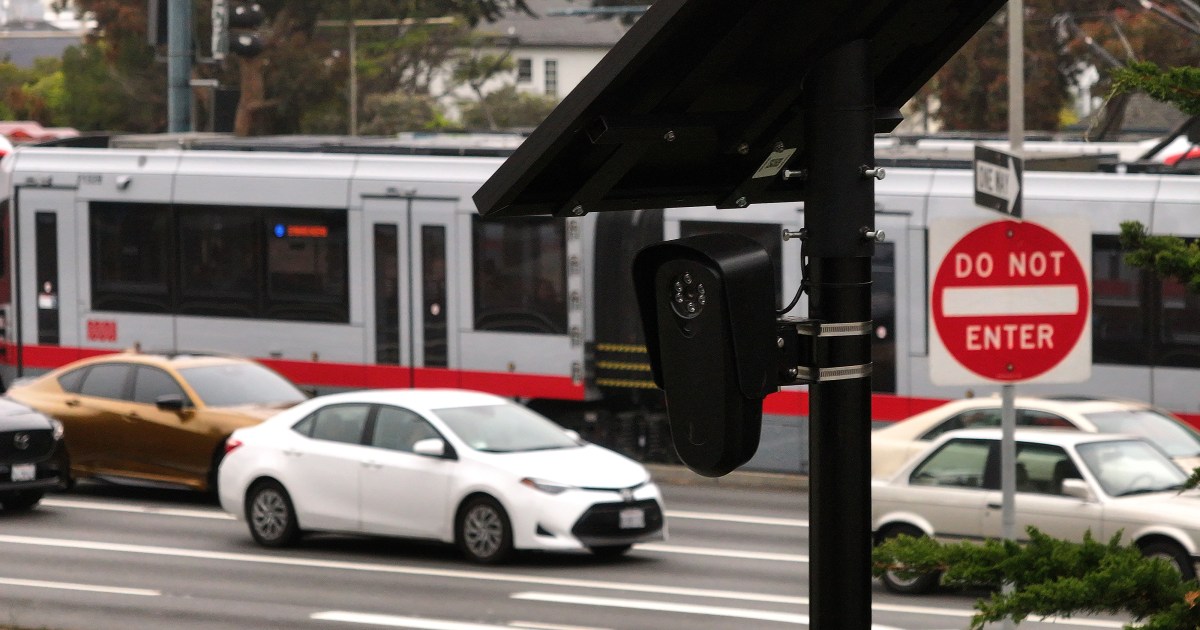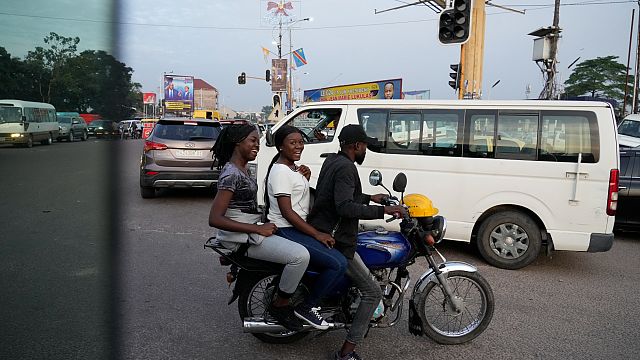Oakland cops gave ICE license plate data; SFPD also illegally shared with feds

San Francisco and Oakland police appear to have repeatedly broken state law by sharing data from automated license plate cameras with federal law enforcement, according to records obtained by The Standard.
The logs show that since installing hundreds of plate readers last year, the departments have shared data for investigations by seven federal agencies, including the FBI. In at least one case, the Oakland Police Department fulfilled a request related to an Immigration and Customs Enforcement investigation.
Under a decade-old state law, California police are prohibited from sharing data from automated license plate readers with out-of-state and federal agencies. Attorney General Rob Bonta affirmed that fact in a 2023 notice to police.
The cameras, made by Flock Safety, capture the license plate of every vehicle that passes them, then store the information in a database for use in police investigations.
Privacy advocates and elected officials have blasted the mishandling of the data by California law enforcement agencies. But the issue received renewed scrutiny after 404 Media reported in May that ICE was accessing information from the nationwide network of cameras manufactured by Atlanta-based Flock. Numerous Southern California agencies similarly shared Flock data with the feds, CalMatters wrote last month.
Today’s stories straight to your inbox
Everything you need to know to start your day.Sign up now!
The logs, which The Standard obtained via a public records request, show every time the Oakland Police Department searched its network of plate readers or granted other agencies access to its data. Each entry includes the requesting agency, reason for the request, time of submission, and the number of Flock networks included in the search.
The OPD didn’t share information directly with the federal agencies. Rather, other California police departments searched Oakland’s system on behalf of federal counterparts more than 200 times — providing reasons such as “FBI investigation” for the searches — which appears to mirror a strategy first reported by 404 Media, in which federal agencies that don’t have contracts with Flock turn to local police for backdoor access.
Oakland cops shared data with feds soon after their cameras went live in August 2024. Two of the OPD’s earliest logs are Sept. 16 searches in which the San Francisco Police Department pulled data from Oakland’s cameras on behalf of investigators at the FBI and the federal Bureau of Alcohol, Tobacco, Firearms, and Explosives.
The SFPD has since searched OPD’s system on behalf of the Drug Enforcement Administration, U.S. Marshals Service, U.S. Park Police, and U.S. Postal Inspection Service.
One search by the California Highway Patrol of the OPD’s system on April 22 is listed as an “ICE case,” with no clarification. A CHP spokesperson said the agency was “actively investigating” the search after The Standard asked for comment.
“If any CHP personnel requested license plate data on behalf of ICE for purposes of immigration enforcement, that would be a blatant violation of both state law and longstanding department policy,” the spokesperson wrote. “If these allegations are confirmed, there will be consequences.”
The SFPD hasn’t responded to a request for its own logs filed by The Standard more than a month ago, but OPD records show San Francisco cops accessed Oakland’s data at least 100 times on behalf of federal agencies.
“OPD will carefully review this information to determine whether any actions are inconsistent with our policies,” an OPD spokesperson wrote. “We will also collaborate with external agencies to identify any potential issues and ensure accountability.”
An SFPD spokesperson said the department is “currently reviewing this information.”
“We take privacy seriously and we have robust policies in place to protect personal information and ensure the responsible, lawful use of surveillance technology,” the spokesperson wrote.
Adam Schwartz, privacy litigation director at the Electronic Frontier Foundation, confirmed that Senate Bill 34 of 2015 prohibits California police from sharing data from automated license plate readers with out-of-state and federal agencies, regardless of what they plan to do with the data or whether they’re working on a joint task force.
“Just because Oakland has collected ALPR data for purposes of dealing with local crime doesn’t mean this is a ‘come one, come all’ buffet,” Schwartz said.
Oakland and San Francisco in March 2024 signed contracts to install hundreds of Flock’s cameras. City officials have touted the cameras’ ability to tamp down on shootings, robberies, and road rage. Indeed, logs show that the vast majority of searches made by the San Francisco and Oakland police departments are related to local crime enforcement.
But the cameras have faced criticism from privacy advocates, some of whom have sued, alleging Fourth Amendment violations.
“We’re proud to be a place that is safe for immigrants, people seeking abortion, and people who are seeking gender-affirming healthcare,” Schwartz said. “In order to be fully a sanctuary state, we also have to be a data sanctuary state.”
Mike Katz-Lacabe, an activist at the group Oakland Privacy, said he’d like to see more litigation or enforcement from state officials to force police to comply with the law banning the sharing of data with federal agencies.
“Lawsuits that cost money generally get agencies and jurisdictions to change how they do things,” Katz-Lacabe said. “Until they actually have accountability, I don’t think that much is going to happen.”
What's Your Reaction?
 Like
0
Like
0
 Dislike
0
Dislike
0
 Love
0
Love
0
 Funny
0
Funny
0
 Angry
0
Angry
0
 Sad
0
Sad
0
 Wow
0
Wow
0






![Cameroun : Paul Biya est candidat pour un huitième mandat [Africanews Today]](http://static.euronews.com/articles/stories/09/37/13/90/640x360_cmsv2_20e79e9d-300e-583b-8abf-9e55791f2dd2-9371390.jpg?1752509506#)



































